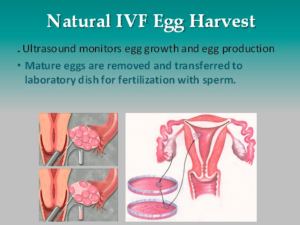What to do when your best friend gets pregnant… and you still can’t

Man, demographics can be a real pain in the neck sometimes. As much as we like to think of ourselves as diverse and interesting and open to friendships with lots of different kinds of people, we mostly spend our time with people like us. What that means is that life will happen in patterns that statisticians call clustering.
It’s why your cohort of friends mostly hang out in the same restaurants or clubs, participate in similar activities, and know all the same people. It’s also why a few years later you wind up having to shell-out for six plane tickets and six wedding gifts in one season, because everyone you know is “at that stage in life”. And more or less, it means, that a significant number of your friends, siblings and other people close to you in age and experience, are likely to get pregnant around the same time. In other words, right at the time that you are most likely to be having trouble getting pregnant, everyone around you is going to have baby glow. Which, if you’re struggling to have a family like we were, can be incredibly frustrating.
Cathy has spoken eloquently, on several occasions, about the stresses and pressures of dealing with friends who are pregnant, people having babies, or everyone going baby-crazy around you. It can be incredibly hard to fully participate emotionally or be happy for friends and acquaintances because it is such a blatant “slap in the face” reminder of our own perceived failings and fears when we can’t do what should be the most natural thing in the world
In some cases, certainly in our case, one of the things we had to do as a general rule was to limit that type of time and exposure, and withdraw when it became too much. For a couple of years, Cathy and I would sometimes excuse ourselves early from certain types of parties, skip certain types of events if it was really a bad week, and generally limit our exposure to all that joy and happiness and goodness, because it only deepened our depression, uncertainty and regret. But what do you do when it’s your best friend? Or a sibling? Or someone else very close to you where you can’t avoid them, you can’t limit your exposure, and most importantly you don’t want to because it is someone you love dearly?
About a year after our IVF cycles, my best friend, a woman in her early 30s, announced to me that she and her husband had just gotten pregnant, and on the first try no less. While obviously wonderful news and I was excited for her, yet another member of our cohort was now about to go through all the happy, fun, glowing, baby-crazy, overjoyed relatives blah blah blah. Honestly, the ones you should be most happy about can sometimes feel particularly challenging.
You can feel not only like everyone around you is getting pregnant (and easily, which just adds to the tooth-gritting) but selfishly, perhaps right when you need them the most, you know in your heart that someone very close to you now has something very important, indeed all consuming, that they will be thinking about, and rightly so. In one shot, you can both feel like “there goes another one, getting all preggers on the first go” and feel the potential loss of an important part of your own support network. Emotional double whammy.
So what do you do? My answer is going to take a quick tangent here.
I happen to be reading a book right now called “Mindware”. It’s about reasoning and the psychology of choices and behavior. A lot of people intuitively understand that their perceptions, feelings and surroundings can affect their behavior, often subliminally. This is shown over and over again in simple experiments, like the one that showed if you’re holding a warm cup of tea or coffee, you’re more likely to be congenial and warm when introduced to a complete stranger.
What many people don’t realize is that the reverse is also true. Behaving differently changes how we feel about things. For example, test subjects enlisted to roleplay a negative or angry person, even briefly, will then report as in significantly poorer moods than those roleplaying a happy or content person. What does this have to do with the best-friend situation?
It helps explain why, despite my own reservations, I dove in headfirst, and why you should too. We would visit with her and her husband regularly. I cheered. I smiled. I told my best friend how excited I was for them. We helped get the house ready for baby, we painted and fixed things, and I regularly spoke to the girl who is now my goddaughter in utero, through mommy’s tummy. (And I swear she knew my voice and has smiled at it since the day she was born.)
My point is this – I compartmentalized. I separated my feelings about our own struggles, as well as the envy, the jealousy and the longing, and made sure that those did not bleed over into my relationship with my best friend. At this time I needed to be there for her and her husband, to be the friend and the man I believed myself to be, and that meant showing support and genuine happiness (and here’s the key) even in those moments when maybe I didn’t feel 100% that way inside.
In my case, there’s no question I was happy for my friend, but also deeply conflicted. By making sure that my outward behavior reflected only the former, and suppress the latter, science tells us that I was actually making myself feel better, and as a result, I was making the situation genuinely happier for everyone involved. There’s an old saying that goes, “Act as if ye have faith and faith shall come to you”. Replace “faith” with “joy” and you have my prescription for what to do in this situation. I know it may sound strange, but I promise it will actually help.
– Eric



